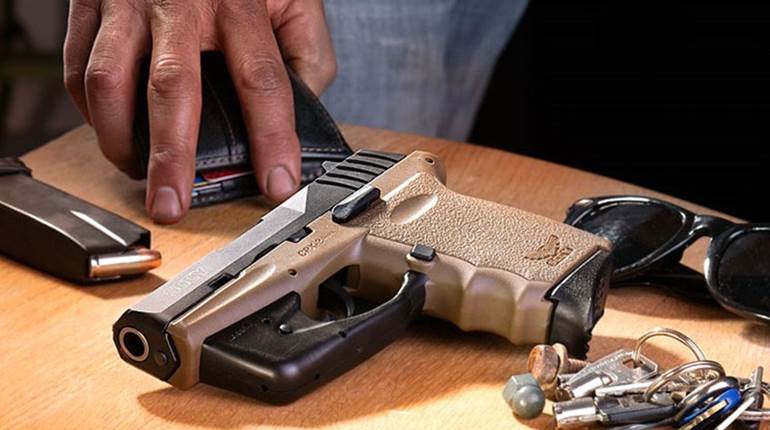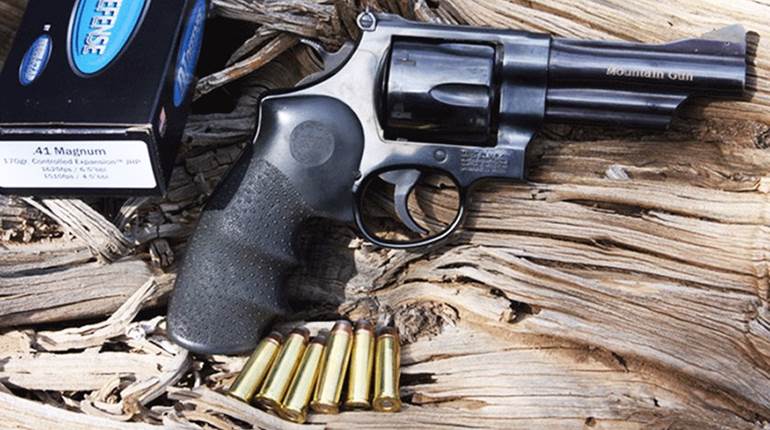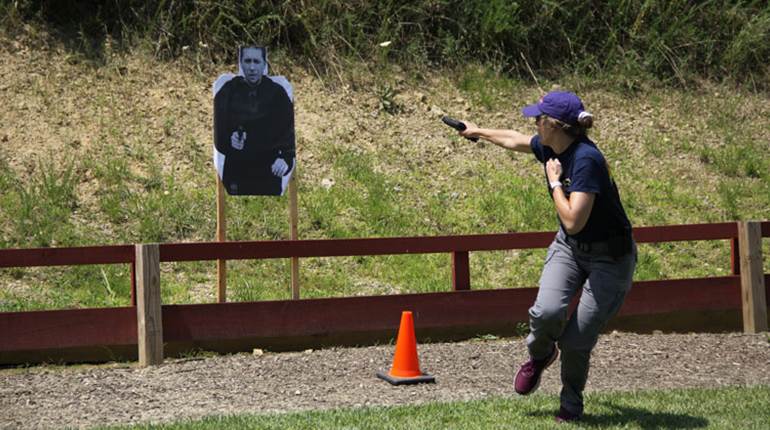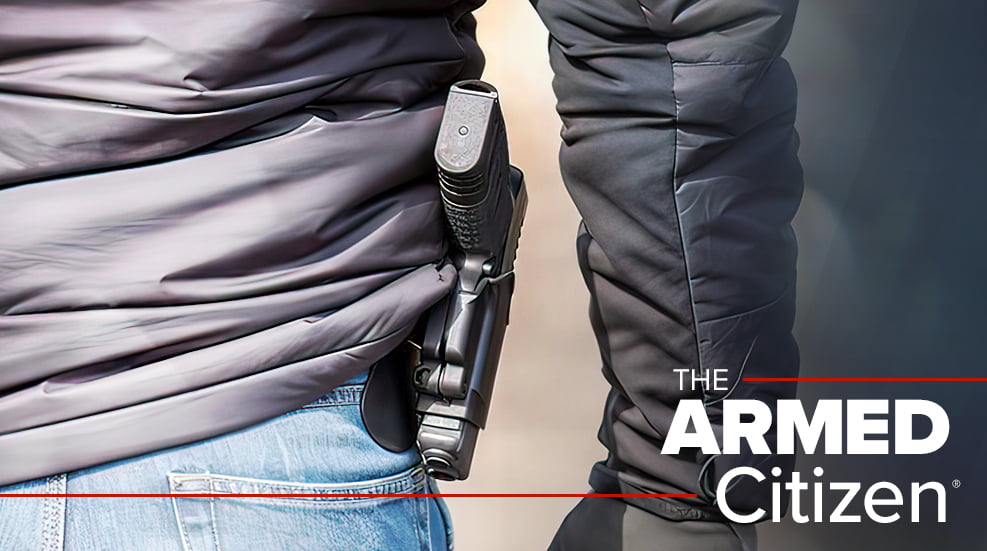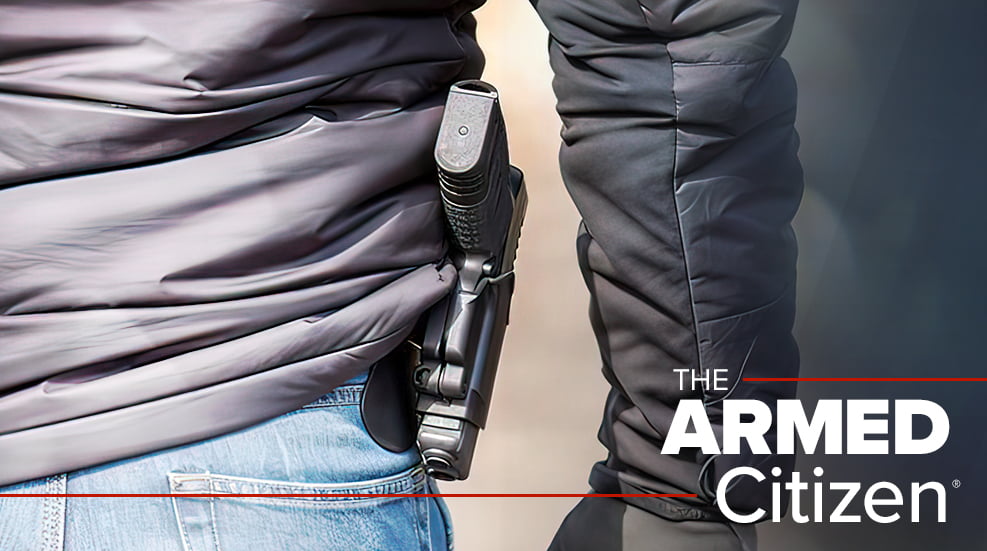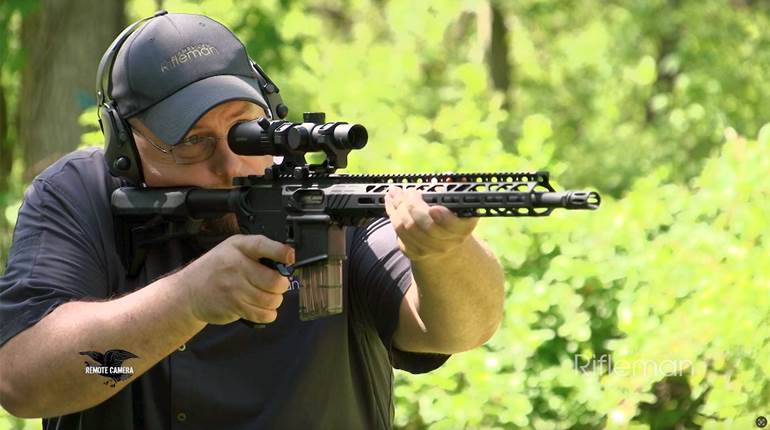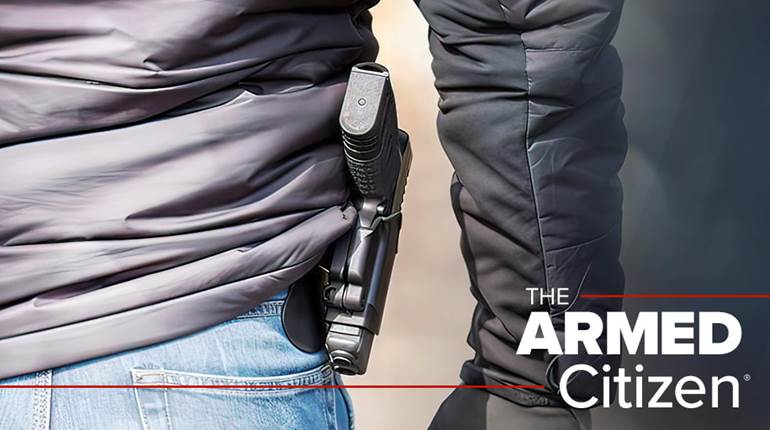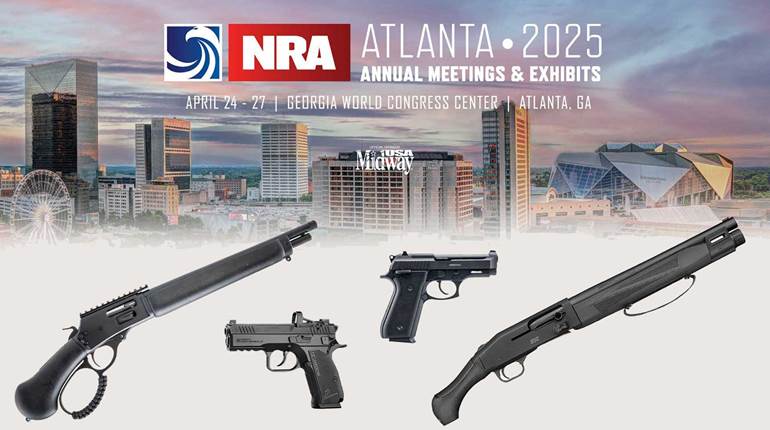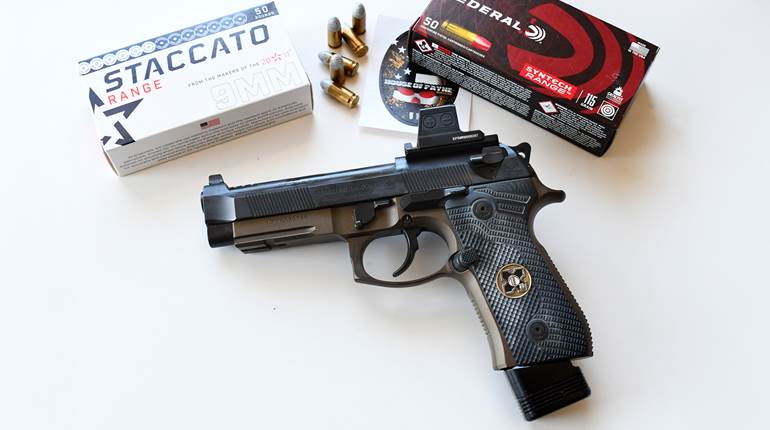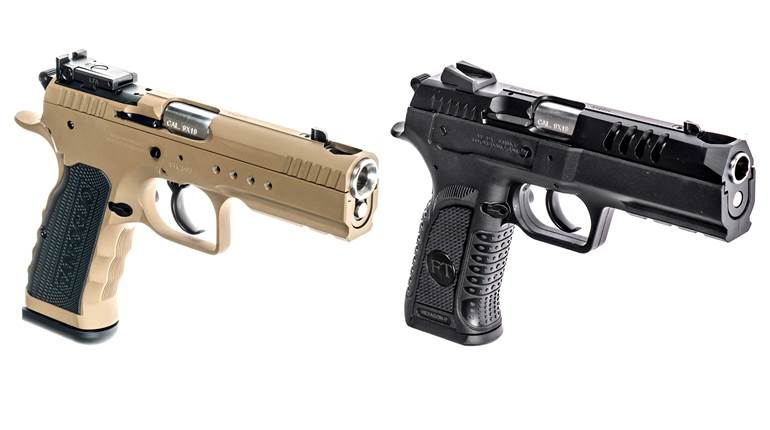
Not too long ago, I had the opportunity to reminisce about my family's fondness for the Colt Series 80 .380 ACP pistols. These particular handguns have been a long time favorite for concealed carry, training new shooters and for all-around plinking. However, the pint-sized Government Model was discontinued in 1999 along with the other 1911-inspired Colt .380s.
Since that time, some of the most regularly requested pistols for re-release by Colt fans have been these little .380s. Thanks to the recent resurgence of the .380 ACP as a pocket rocket caliber, along with the persistence of this pistol's fans, Colt has re-introduced this product line. The first Colt out of the gate is a new version of the Mustang Pocketlite pistol.
Pistol Features
The first impression the Pocketlite gives is that of a 1911 that shrunk in the wash. The pistol’s overall outline, slide shape and serrations, the milled-in front sight and dovetail rear sight, are all quite familiar. The slide release, manual safety and magazine release are all where you would expect to find them, only smaller. The six-round stainless-steel magazines fit snugly into a compact grip frame that provides a solid two-finger grip surface.
The slide is stainless steel, supported by an aluminum frame with a matte electroless nickel finish. The black polymer grip panels feature molded-in checkering and silver Colt medallions. The trigger, tested with a Lyman digital trigger pull gauge, weighs in at 5 pounds, 10 ounces. This is slightly on the heavy side for a single action, but much more comfortable to work with than the 8 to 10-pound triggers of the now fashionable double-action only pocket .380s. The size and weight of the Pocketlite make it ideal for pocket carry with a quality pocket holster like the DeSantis Nemesis.
Although this pistol shares several similarities with its larger 1911 cousins, a few of the differences are worth noting. The full-length guide rod is made of polymer and fitted with dual recoil springs, and the slide does not have a barrel bushing. The grooved polymer trigger is pinned at the top, so it pivots more like a revolver trigger than traveling straight back like that of a 1911. However, the trigger's crisp stroke is short enough that the difference in motion is not really noticeable.
While the Pocketlite is not fitted with either a grip or magazine safety, it is replete with other safety features. The firing pin is an inertia type. This means it must receive a solid strike from the hammer in order to fire. If in the process of cocking the hammer your thumb should slip, the hammer has a half-cock notch that prevents the hammer from falling all the way forward to strike the firing pin. A disconnector prevents the pistol from firing out of battery, and the pistol also has a firing pin safety. The slide can be cycled with the hammer cocked and the left side manual safety in the on-safe, or upward, position. This allows all of the operations related to loading and unloading the pistol to be conducted with the manual safety engaged.
At the Range
Devoted 1911 fans I've met with who've shot the Colt .380s report them to be a natural understudy to the full-size .45s, as well as a logical choice for a lightweight concealed carry gun. The sights are just right for this pistol. The system is low profile to allow for a no-snag draw in defensive situations, but easy to see when you want to conduct target work. The fine checkering of the grip panels and the slight texture of the front and backstrap provide bare hands with a reliable grip surface.
For those shooters with smaller hands, who find the controls of traditional 1911s to be difficult to reach, the compressed size of the Pocketlite puts all of the buttons and levers within easy reach. For those shooters interested in a pistol that does not require Herculean strength to operate, the slide is easily racked and the magazine requires only a modest amount of pressure to seat properly. All in all, it's a very enjoyable pistol to work with, especially for a pocket sized semi-auto.
The Pocketlite is not a target pistol by design, but it shoots with exceptional accuracy. It's not uncommon when testing pocket pistols like this one, using five-shot group averages from a bench rest, to sneak the targets up to the 7-yard mark just to give the little critters a fighting chance. However, the performance of the Pocketlite at 7 yards made it clear this pistol arrived ready to work at the 25-yard mark.
In the course of formal accuracy testing, no single five-shot group exceeded 2.75 inches at 25 yards. The best individual five-shot groups of 2 inches were produced by DoubleTap 80-grain Barnes Tac-XP jacketed hollow points and Winchester 95-grain PDX1 jacketed hollow points. The best group average of 2.25 inches was produced by the DoubleTap load, followed by a 2.3-inch average produced by Winchester. The third ammunition tested with this pistol is a new load from a new company. The HPR 90-grain Hyper Clean jacketed hollow point produced a best single fve-shot group of 2.25 inches, with a five-group average of 2.5 inches. It’s important to note here that if groups from any defensive pistol hover around the 3-inch mark at 25 yards, you can safely consider it an accurate shooter. For the Pocketlite to consistently produce groups of less than 2.75-inches with a variety of ammunition is a mark of how impressive the pistol's accuracy really is.
With the formal testing out of the way, I proceeded to have a great time running a variety of ammunition through the Mustang to check for reliability. The modest recoil of the pistol, the excellent trigger and the just-right sights made off-hand shooting with targets at a variety of distances an easy and enjoyable exercise. With all the ammunition I tested, from imported ball to defense-grade hollow points, this little pistol had no failures or hiccups of any kind.
Final Thoughts
Although the re-release of the Colt Mustang Pocketlite .380 ACP is fashionably late for the recent pocket pistol revolution, it certainly is the right time for this excellent defensive pistol to be back on the market. The Mustang may be a few ounces heavier than some of its polymer competitors, but what's an ounce here or there when compared to the shootability, reliability, and top notch accuracy this pistol has to offer? If you are in the market for a compressed 1911 pocket gun for personal protection, or it would be handy to have a .380 that can be comfortably operated by your whole family during trips to the shooting range, then the Colt Mustang Pocketlite deserves your attention. This little Colt is ready to work hard and get the job done while providing an enjoyable ride along the way.
Manufacturer: Colt's Manufacturing Company LLC; coltsmfg.com
Model: Mustang Pocketlite
Action: Single Action Semi-Auto
Caliber: .380 ACP
Slide: Stainless Steel
Frame: Aluminum with Electroless Nickel Finish
Grips: Checkered Black Polymer
Sights: Fixed Front, Dovetail Rear
Barrel Length: 2.82”
Overall Length: 5.54”
Height: 3.98”
Width: 1.06”
Weight: 13.7 ozs
Capacity: 6+1 Rounds
Twist: 1:16” RH
Rifle Grooves: 6
Suggested Retail Price: $599













